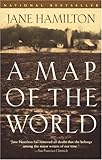 My book group was on the hunt for a new book. Olive Kitteridge was recommended based on a Goodreads list. I hadn't heard of the book, but thought it sounded interesting based on the short blurb I read. I tried to reserve a copy through the library. Our city-wide system has at least half a dozen copies of the book. After 6 weeks on hold with no word, I finally found a copy at my university library. Apparently, I am not the only person interested in this book right now. It was just published in 2008, but someone has gotten the word out.
My book group was on the hunt for a new book. Olive Kitteridge was recommended based on a Goodreads list. I hadn't heard of the book, but thought it sounded interesting based on the short blurb I read. I tried to reserve a copy through the library. Our city-wide system has at least half a dozen copies of the book. After 6 weeks on hold with no word, I finally found a copy at my university library. Apparently, I am not the only person interested in this book right now. It was just published in 2008, but someone has gotten the word out.The book is a series of unconnected short stories with the link that everyone involves the character of Olive Kitteridge in some way. They range in time from her as a spouse with a tween son to her as an elderly widow. Some of the chapters are from Olive's point of view. In some chapters she has a secondary role to the main story, and in a couple of chapters she is merely a mention a la, "Do you remember what our junior high math teacher Olive Kitteridge once said." I really enjoyed the unconventional perspective of the novel. Weaving the stories together the reader does get multiple sides of a quirky, snarky, realistic person.
I must admit that when I first started reading I feared that the novel would be much like A Map of the World. There is so much sadness in Olive Kitteridge that it can get a bit overwhelming. Does no one have a happy life anymore? But, I didn't feel that way by the end of the book. Strout leaves the reader with a sense of hopefulness and optimism.
Part of what I liked about this book was the age of the main character. Too often individuals over the age of 50 are relegated to the role of "grandparent." Their own thoughts and desires do not seem to be considered. I appreciated Strout's inside look at the continued love affairs, frustrations, and emotionality of her characters. Emotions don't disappear with age; if anything Strout shows how they become even more crucial as other material aspects of life do fade.
Finally, I found myself having a better understanding of the persnickety attitude of my grandma as she got older. She became the stereotypical cantankerous old lady who just liked to argue and was never happy. Yet, Strout was able to portray the disillusionment and confusion of the elderly as life passes them by and demonstrates how and why those emotions boil over.
Olive Kitteridge is not a book I would have picked up on my own. It does have a bit too much of the syrupy, let's toy with your emotions feel that I find in too much contemporary literature. Nonetheless, I put the book down glad that I had read it.






